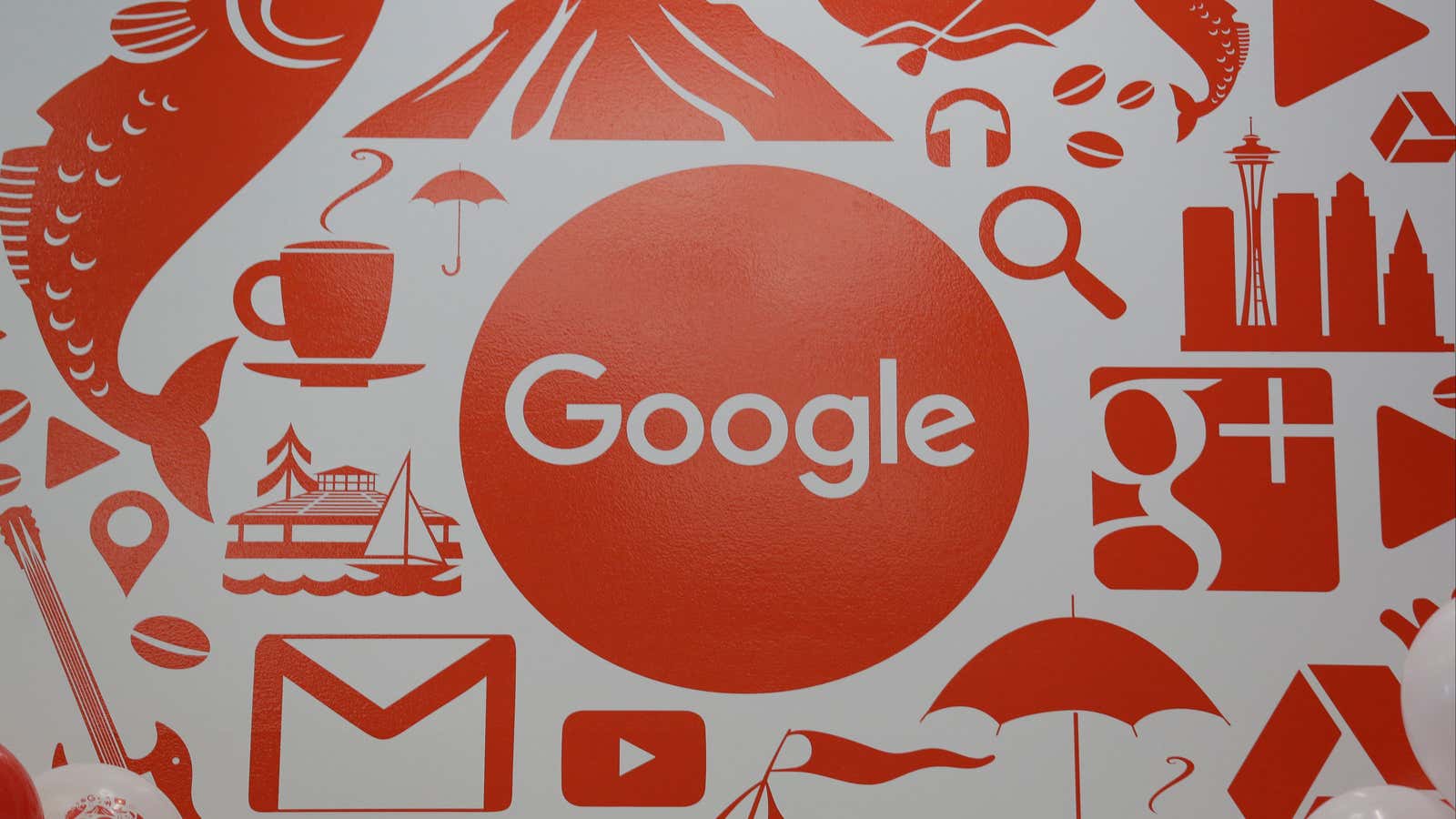Alphabet is proving itself to be more than just a one-trick pony.
Revenue at Google’s parent company rose 25% during the second quarter of 2018, compared with the same period last year. It generated $26.24 billion, excluding traffic costs paid to partners, the company said (pdf) today, July 23. Earnings also soared to $11.75 a share, from $8.90 a year ago—excluding a recent $5 billion fine from European regulators.
Alphabet’s stock price was up 3.6% to $1,254.90 in after-hours trading at the time of publishing.
The gains weren’t just from Google’s lucrative advertising business, which announced for 86% of Alphabet’s revenue during the quarter. Google’s other revenues, including cloud services, hardware, and app sales, grew a solid 37% to $4.4 billion over the same quarter a year earlier. (Alphabet recast its revenue breakdown from the second quarter of 2017 to reflect that it moved its Nest connected-device business from “other bets” to Google’s non-advertising revenue earlier this year.)
Diversification has been important for Alphabet as data-privacy concerns and rising costs have placed pressure on profits from Google’s core advertising business.
The largest lift in Google’s other revenues likely came from cloud storage, given that April through June isn’t peak-selling season for hardware. Domino’s Pizza, SoundCloud, PricewaterhouseCoopers each brought their businesses to the Google Cloud recently, and Target migrated parts of its businesses to the platform, Google CEO Sundar Pichai said during a call with investors. He also added that G Suite, the company’s commercial productivity services, was growing.
“Our Cloud business has great momentum,” Pichai said. “It’s a natural extension of our long-time strengths in computing, data centers, and machine learning.”
Tomorrow, the company kicks off its Google Cloud Next conference, an annual event where it shows off the latest in its cloud technologies.
Chromebook laptops, which took off during the period, also aided Google’s other revenues segment. Unit sales of managed Chromebooks rose 175% year over year, Pichai said. (Google does not produce the majority of Chromebooks that are sold, but instead charges schools and other institutions that run Chromebooks a fee to manage its Chrome OS on each device.)
Advertising revenues, the backbone of Alphabet, grew handsomely to $28 billion, minus about $6.2 billion in the fees its pays manufacturers like Apple to be the default search engine on their devices. Those traffic-acquisition costs, or TACs, came in below analysts’s expectations, based on FactSet data. Pichai said advertising on YouTube, which Google does not break out financials for, was “incredibly strong.”
Alphabet’s “other bets,” like its self-driving car business Waymo and health-tech company Verily, continued to lose money, accounting for an operating loss of $732 million in the second quarter.
